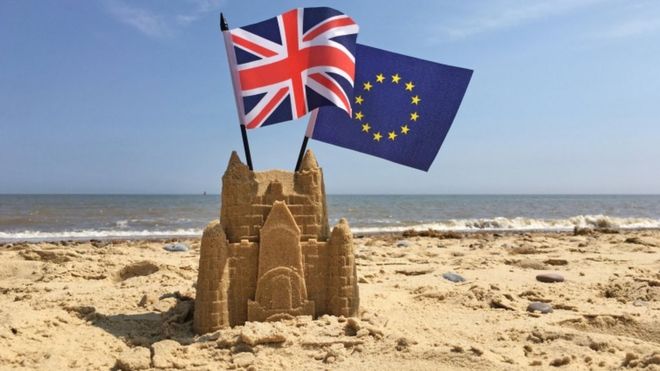Brexit & Your Holiday - Important Information

Many people are already booking their travel plans for 2019, and have questions about what might happen after 29 March 2019 when the UK leaves the European Union (EU). While the political situation remains uncertain, ABTA has identified actions travellers may wish to take in advance to help avoid unnecessary future disruption.
The information only covers areas where people can take reasonable action or put plans into place now. Areas where the situation is still unclear are not included, but the information will be updated once clarified.
Passports
Check the date your passport expires. When travelling to the EU after 29 March 2019, the UK government recommends that you have six months left on your passport on the date of your arrival to an EU country.
You should also check when your passport was renewed. If you renewed a 10 year adult passport before it expired, extra months may have been added to your passport’s expiry date. These extra months over 10 years will not count towards the 6 months that must be remaining. The UK Government has published a website tool to check the validity of your passport under these rules.
You can renew your passport online or by going to a Post Office with a Check and Send service. You may wish to renew your passport sooner rather than later, in order to make sure you have it in time for your holiday or travel plans. Full details on renewing your passport can be found here.
European Health Insurance Card and travel insurance
The European Health Insurance Card (EHIC) allows any EU citizen to access state medical care when they are travelling in another EU country. In the event of a no-deal Brexit, UK registered EHICs will no longer be valid.
ABTA has always advised holidaymakers and business travellers to make sure they have appropriate travel insurance, whether they have an EHIC card or not, as there are limitations to EHIC.
When travelling in the EU and beyond, it is important you take out travel insurance and check that it covers your current circumstances, including any medical conditions. If you have an annual policy, make sure you check the Terms and Conditions and contact your insurance provider if you’re not sure. Advice on travel insurance can be found here.
Driving licences
As long as you have a full UK driving licence, you don’t currently need an additional licence to drive in the EU. This is likely to change in a no-deal scenario. UK travellers looking to drive in the EU on or after 29 March 2019 may need to apply for the relevant International Driving Permit.
These cost £5.50 and are available directly from the AA, the RAC or the Post Office. The Government is working to extend the network of Post Offices where you can apply for an International Driving Permit, and has plans to roll these out in more branches across the UK from 1 February 2019.
Check carefully which permit is required for each country you intend to drive within, as you may need more than one permit to comply with the law. More information is available here.
Green cards for car insurance
If the UK leaves without a deal, UK citizens driving their vehicle within the EU would be required to obtain and carry a physical Green Card in order for your UK car insurance to be applicable in the EU. These cards would be issued by insurers and you may be charged a small fee to cover administration costs. Speak with your insurer for more information on obtaining a Green Card for any trip on or after 29 March 2019.
Taking pets abroad
In the event of a no-deal, pets would continue to be able to travel from the UK to the EU, but the requirements for documents and health checks would change. If you wish to take your pet to the EU on or after 29 March 2019 pet owners would need to discuss preparations for their pet’s travel with an Official Veterinarian at least four months in advance of the date they wish to travel. Pet owners should keep an eye out for any further instructions issued by the UK Government. More information is available here.
Data roaming
Under EU rules, the cost of making calls, sending messages or using the internet on your phone in the EU is the same in the UK. If the UK leaves without a deal these rules will no longer apply – however, some UK companies have said they may continue to offer this benefit to their customers. Before you travel, check with your mobile phone provider about the costs of using your phone in the EU.
Frequently asked questions
Will flights still operate?
If a deal is agreed then we will be in a transition period, meaning everything will stay the same until the end of December 2020. Even if we are in a no-deal scenario, the European Commission has said that UK airlines will still be able to operate flights between the UK and the EU.
Will I need a visa to travel to the EU after Brexit?
The European Commission announced in November that, even in a no-deal scenario, UK travellers can still visit the EU without a visa, providing the same is offered to European citizens visiting the UK.
What happens if I book to travel after 29 March 2019 and my holiday cannot go ahead due to Brexit?
In a no-deal scenario, the European Commission has said flights to and from the UK will still be able to operate. In any event, customers who book a package holiday with a UK travel company will be protected under the Package Travel Regulations, meaning they have a right to a full refund if the holiday can no longer be provided.






